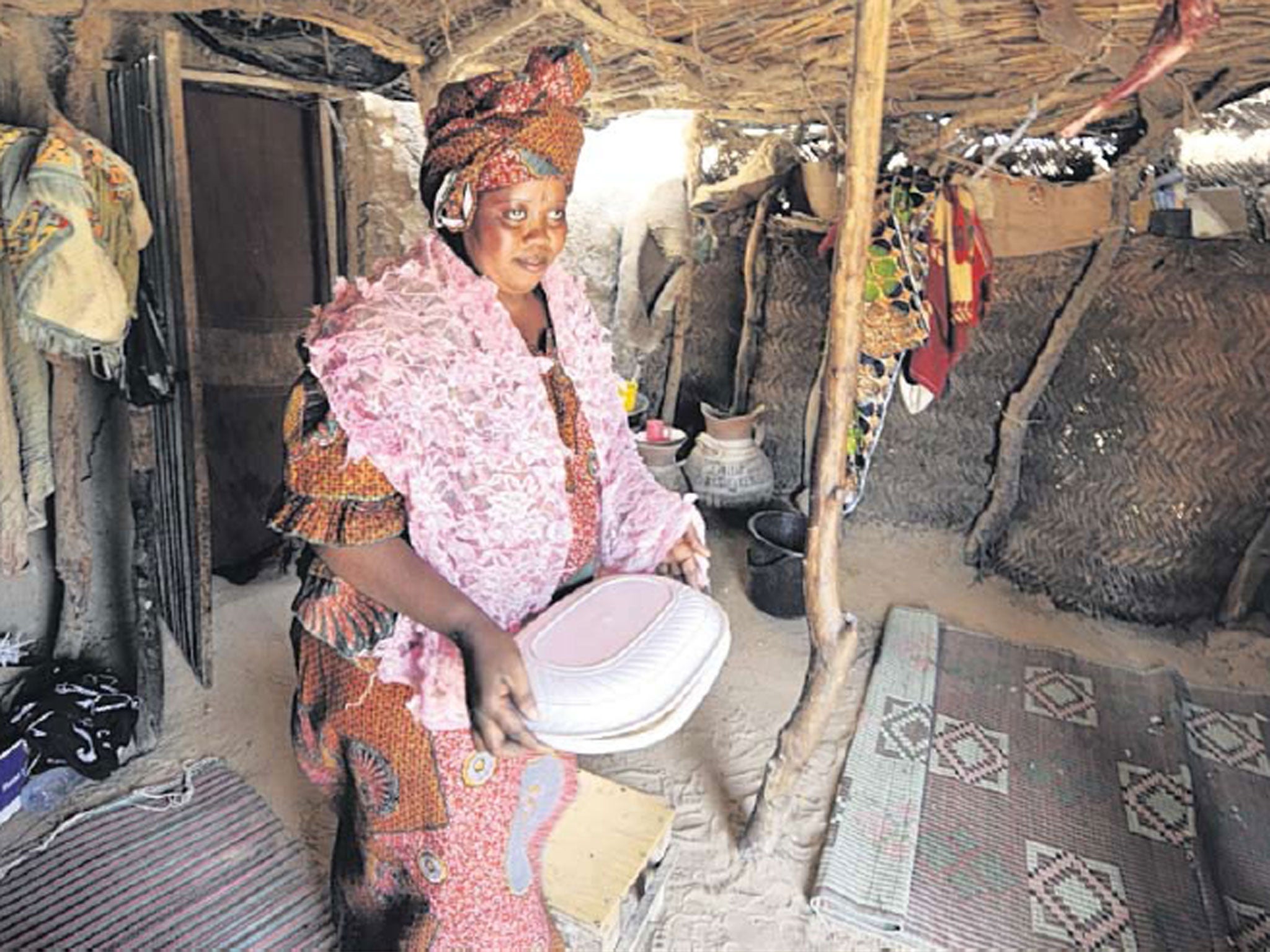Revealed: how French raid killed 12 Malian villagers
Witnesses describe the moment civilians fell victim to a helicopter attack

A father has described the moment a French attack helicopter bombed his town in Mali, killing his wife and at least three children from another family. Amadou Jallo, 57, lost his wife Aminata in the attack on Konna in which 12 civilians died and 15 more were injured.
But the couple’s one-year-old son, Saida, miraculously survived the assault despite the fact he was being carried on his mother’s back when the helicopter struck. “I thank Allah that my son is alive. It is amazing, a miracle, that he was not hurt,” he said.
The deaths – which included those of three children aged under 11 – occurred two weeks ago as French forces tried to drive out Islamists who had taken the town from government forces, but are only now being reported after Malian troops allowed reporters into Konna at the weekend.
One French helicopter pilot also died in the assault, to date the only confirmed French casualty of the war. French and Malian forces were closing in on the ancient town of Timbuktu tonight after advancing deep into the territory held by Islamist rebels. Earlier, there were ecstatic scenes in Gao as government troops entered the largest town in northern Mali for the first time in nine months.
The three allied Islamist rebel groups which conquered the north of the country last year offered only sporadic resistance. The rebels appear to have scattered into the desert to avoid relentless French air attacks and – France suspects – to launch a long guerrilla war.
French special forces were reported to have already arrived at the airfield in Timbuktu tonight to prepare for a larger airborne invasion today. The bulk of the Islamist fighters were said to have left the town.
A resident of the nearby town of Niafunke, just to the south, said that the jihadists had fled to caves in the surrounding hills. A local shepherd said that he had seen 40 vehicles hidden in the caves.
The capture of Gao on Saturday followed the same pattern as the liberation of other towns in recent days with French special forces, transported by air, doing the shooting before Malian and other French troops moved in behind them. The French forces had come under fire from “several terrorist elements” that were later “destroyed”, the French military said.
Lindsey Hilsum of Channel 4 News reported on her blog extraordinary scenes of joy when French and Malian forces entered Gao. “They rallied around us as we sped through the streets throwing Malian flags around our necks. Grabbing our hands shouting ‘Thank you’,” she wrote.
“For nine long months the people of Gao have not been allowed to sing, dance, shout or smoke. The women have not been allowed outside unveiled, let alone to ride motorbikes.”
“Now they were doing everything as loudly and chaotically as possible.”
A force from Chad and Niger is expected to cross the Nigerien border today help to garrison the Gao region. This will be the first front-line deployment by the pan-African force up to 7,500 strong which is expected eventually to take over most of the ground fighting from the French.
Despite efforts in recent days to talk up the achievements of “coalition forces”, a French army spokesman confirmed today that their troops had led all combat efforts since France intervened two weeks ago last Friday. “In the field it’s clear that it’s more efficient to send French troops with heavy equipment,” he said
French warplanes struck targets today in Kidal – the last of the three major towns held by Islamists in northern Mali. Among the reported targets was the home of Iyad Ag Ghaly – the leader of Ansar Dine, one of the trio of Islamist groups that has controlled northern Mali for the last nine months. Tensions between Paris and Washington over the French intervention appeared to have been resolved over the weekend.
After dropping its demand for payment by France for use of its transport planes, the Pentagon agreed to use of three KC-135 aerial refuelling planes based in Spain to help French fighter-bombers to attack targets in northern Mali from airfields in France.
Subscribe to Independent Premium to bookmark this article
Want to bookmark your favourite articles and stories to read or reference later? Start your Independent Premium subscription today.

Join our commenting forum
Join thought-provoking conversations, follow other Independent readers and see their replies